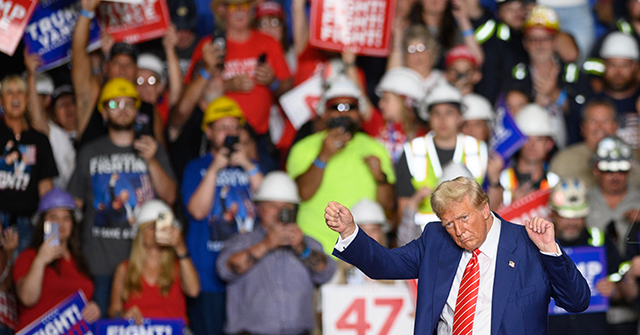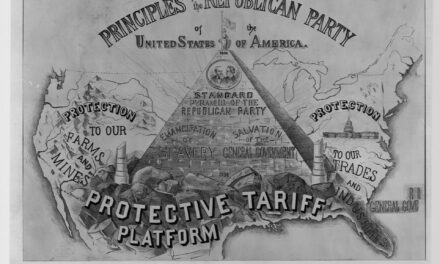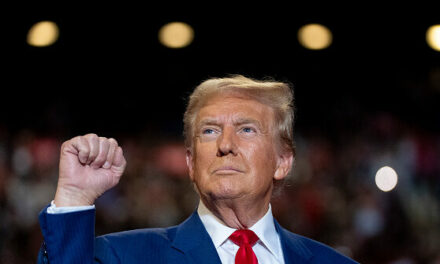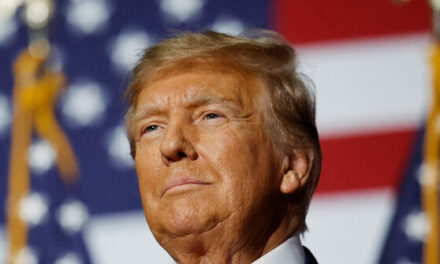We support our Publishers and Content Creators. You can view this story on their website by CLICKING HERE.

The Trump Transition Is Winning Good Marks
If the aftermath of Donald Trump’s victory on Election Day feels joyous and tranquil, you are not alone.
American households and businesses are much more serene and hopeful this time around. Polling released by Pew Research on Friday shows that 70 percent of Americans are very or somewhat confident that the transition to the Trump administration will go smoothly. Similarly, a majority of Americans say they have a positive evaluation of Trump’s post-election conduct.
A 53 percent majority of Americans say they approve of the president-elect’s plans for the country. When asked if they approve of Trump’s conduct post-election, 53 percent answer affirmatively. That’s better than the 40 percent who said they approved of Trump’s cabinet choices in November 2016 and the 41 percent who said they approved of the job he had done in explaining his policies and plans for the future.
Of course, there are the usual partisan differences in how people are reacting to the election. As recently as October, just 10 percent of Republicans said they were satisfied with the state of the country, according to Pew. Now, 35 percent are satisfied. Democrats have seen their satisfaction slip from 38 percent to 24 percent.
Consumer Sentiment Shows Republican Hope Beats Democrat Despondency
Similarly, the University of Michigan’s survey of consumer sentiment showed an explosion of hope for the economy among Republicans and a slump among Democrats. The GOP expectations index jumped from 61.4 to 89.2, the highest since October 2020. The Democrat expectation index fell from 93.1 to 75.4. Independents were mostly unchanged. The aggregate effect of this was to push up the expectations index by 3.8 percent. As a result, overall consumer sentiment improved even though the current conditions metric worsened.
How does this compare with four years ago? When Biden won the election, consumer sentiment actually fell. The current conditions index improved a bit, but there was a sizable decline in the expectations component. Perhaps counter-intuitively, Democrat views of current conditions fell from October 2020 to November 2020 while Republican views improved. But in the expectations gauge, the Republican outlook crashed and the Democratic outlook improved.
Famously, over the next four years, consumer sentiment remained very low. Six months after Biden’s election, the consumer sentiment index was almost exactly where it had been before the election. Six months after that, it was down almost 18 percent and headed even lower as the worst inflation in four decades gripped the nation.
In other words, Americans really are feeling better about the country and the economy. Though the sentiment figures may exhibit a partisan hue, it is manifest that Republican buoyancy has ascended with far greater vigor than the Democrats’ penchant for political melancholia.
Comparisons with the last time Trump was elected president are harder to make because the University of Michigan’s consumer survey only measured partisan affiliations occasionally. So, we know how Republicans and Democrats felt in October of 2016 (Democrats were much more positive than Republicans) and in February of 2017 (when Republicans were much, much more positive). Overall, consumer sentiment rose following Trump’s election, with boosts in both the expectations and current conditions metrics.
Flash! Bang! Business Confidence Grows
American businesses are also feeling more positive about the economy. The S&P Global “flash” composite purchasing managers index climbed to the highest level in 31 months, beating expectations. The services side of the survey reached a 32 month high, and the beleaguered manufacturing index climbed to a four-month high. Optimism about output staged a notable comeback in November, rebounding for the second straight month after hitting a 23-month low in September. Confidence reached its highest level since May 2022, with a particularly striking surge in the manufacturing sector, where optimism hit a 31-month peak.
“The business mood has brightened in November, with confidence about the year ahead hitting a two-and-a-half year high. The prospect of lower interest rates and a more probusiness approach from the incoming administration has fueled greater optimism, in turn helping drive output and order book inflows higher in November,” said Chris Williamson, chief business economist at S&P Global Market Intelligence.
And there are hints of what our friends Larry Kudlow and David Malpass have been calling a “blue collar boom.” The promise of domestic tariffs is lifting confidence in the goods producing sector, according to Williamson, which is fueling higher factory employment. The Philadelphia Fed’s monthly manufacturing survey came in weak overall, but there was in increase in the expectations gauges and a surprise uptick in the employment measure.
The numbers don’t lie. Hope and confidence are back in style, and the economy is starting to feel it.

 Conservative
Conservative  Search
Search Trending
Trending Current News
Current News 







